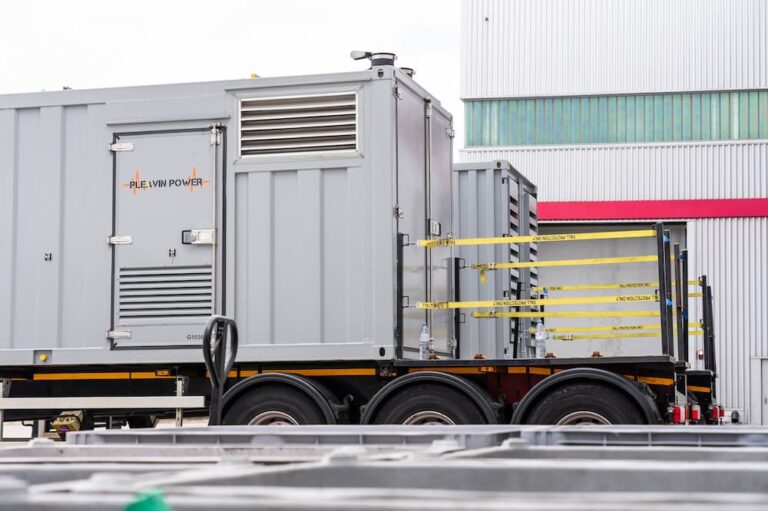Are you looking to store the fuel for your generator at home or on business premises? You may already be aware that fuel is a hazardous, combustible substance that should be dealt with extreme care. If you choose not to handle fuel carefully, it could lead to dangerous situations which could endanger the health of yourself and those around you.
Over 15% of pollution incidents every year are due to an oil spillage, meaning it is one of the most common culprits in pollution. Oil spillages can cause damage to natural habits such as plants and they damage our rivers. Many of these incidents could be avoided when correctly storing fuel.
To make sure that you are safely storing your fuel for a generator, there are set regulations that are in place that must be followed in order for correct storage. You could potentially face legal action through anti-pollution laws. Storing your fuel for a generator requires different guidelines depending on where you attempt to store your fuel.
Storing Fuel At Your Home
If you have recently purchased a fuel container to store your fuel for your generator then you must make sure that you are meeting England’s building regulations. If you are currently residing in Wales, Northern Ireland or Scotland area then you might be subject to different guidelines.
Less Than 30 Litres
Those who are looking to store up to 30 litres in their home will not have to alert anyone but you are required to store your fuel within different containers. This is required by law and it depends on how much oil you are attempting to store.
- 10 Litres – Plastic Container
- 20 Litres – Metal Container
- 30 Litres – Demountable Fuel Tank
30+ Litres To 275 Litres
You can store up to 30 litres without having to make it known to anyone – but if you are attempting to store 30+ litres plus up to 275 litres, you will have to notify the Petroleum Enforcement Authority. You’ll need to include information such as your name, address and fuel storage location.
275+ Litres To 35000 Litres
It is possible for you to store over 275 litres of fuel at your home up to 35000 litres – however, you will need to apply for a petroleum storage certificate and licence. To be able to get a petroleum storage certificate and licence, you will have to reach out to the PEA who will be able to grant you both a certificate and licence which will usually last a couple of years and can not be transferred.
There are some tips that we recommend when storing your fuel for a generator in your home.
- Much like a generator, you shouldn’t store it inside your home but the best place you can store your fuel is inside your garage or a shed.
- Never dispense from a storage tank on your premise, it doesn’t matter if you attempt to do it manually or electrically, it shouldn’t be attempted.
- Make sure that your fuel is stored in the open air, if it is not possible for you to store your fuel in the open air then ensure you have a direct exit to the open air and ventilation to the exit.
- Do not place where there are any sources of heat that could ignite the fuel.
If you are planning to store more than 35000 litres of fuel for your generator, then you must start following regulations set in place for businesses. You will have to apply for planning permission to install an oil tank that is capable of holding large amounts of litres.
Storing Fuel For A Generator For My Business
If your storage container in your business is capable of holding over 200 litres at your business, you must follow regulations set in place such as the Control of Pollution Regulations 2001.
You will have to follow this regulation if you are planning to store:
- Biofuels
- White Diesel
- Vegetable Oil
- Generator Lubrications
- Motor Oil
There are a few exemptions from the legislation such as:
- Waste Mineral Oil Storage
- Oil Stored Underground
- At Premise Where Distribution Of Oil Is To Elsewhere
Whoever instals your fuel tank then must ensure that it is built in line with the building regulations and they should be able to alert you whether you will need secondary containment to protect you from any wanted spillage.
You need to remember that it is all up to you – and if there is any pollution from spillage, then it is your responsibility. Make sure to get a registered company that is highly rated to help you correctly store your fuel for your generator.
Conclusion
Owning a generator entails storing fuel and that can be on an extended basis over time. Generators need fuel to be able to provide power without needed constant generator repair. Sufficient fuel storage is key as you never know when your generator may be called into action as we usually need our generators in times of crisis.
That means you will need to take this into consideration in order to get the most shelf-life out of your fuel. Generators are highly durable pieces of equipment that can last for years that won’t go bad just sitting around, but diesel and gasoline fuel can go bad when not stored correctly.
Ideally, you do not want to store your fuel inside your generator even more if it is a gas-powered generator. Many people believe that it is okay as generators are built to have fuel shutoff valves but in reality, it could be damaging in the long run. We recommend that you try to keep your generator dry until the time comes when you need to use it.
How much fuel you are going to require will mostly depend on how long you will need to power your generator. That is why many people like to store a good amount of fuel just in case the time comes when they need to power a generator for an extended period of time without any trouble.

Jack is the owner of Pleavin Power which was founded in 2017. He has worked in the power industry for over a decade and has an extreme focus on providing a quality service to clients across the UK. This has led Pleavin Power to becoming the market leader in the Critical, Prime & Standby Power markets.








